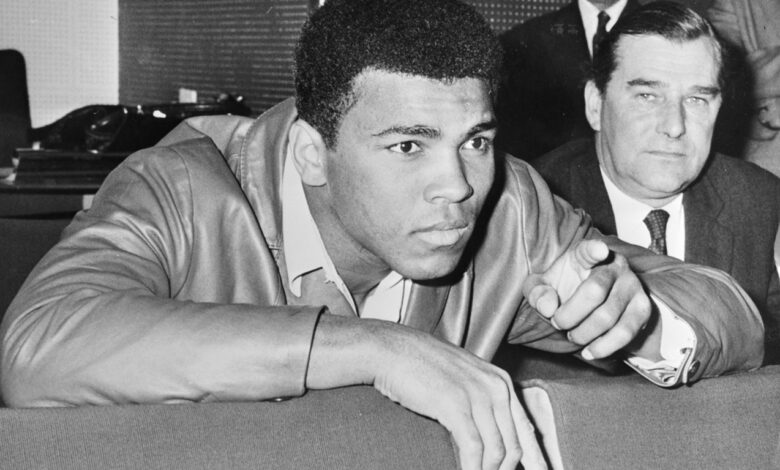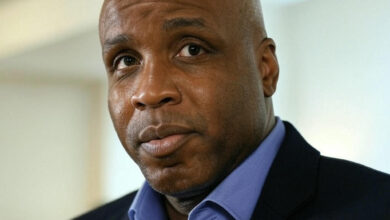Muhammad Ali: The Greatest Boxer of All Time

Muhammad Ali: The Greatest Boxer of All Time
In the pantheon of sports legends, few names resonate as profoundly as Muhammad Ali. His moniker, “The Greatest,” was not merely a boast but a declaration that has withstood the test of time. Ali was more than just a boxer; he was a cultural icon, a social activist, and a beacon of hope for millions. But what truly cements his place as the greatest boxer of all time? To answer that, we must delve into his remarkable career, his indomitable spirit, and how he stands head and shoulders above other boxing greats.
A Boxing Genius in the Ring
Muhammad Ali’s boxing prowess was a marvel to behold. Born Cassius Marcellus Clay Jr. on January 17, 1942, in Louisville, Kentucky, Ali’s journey to the top began when he won a gold medal in the light heavyweight division at the 1960 Rome Olympics. His unorthodox style—characterized by his dazzling footwork and lightning-quick jabs—defied the conventions of heavyweight boxing. Ali’s famous mantra, “float like a butterfly, sting like a bee,” was not just catchy; it perfectly encapsulated his unique approach to the sport.
At 6’3″ with a reach of 78 inches, Ali was a physical specimen, but it was his speed and agility that set him apart from his contemporaries. He moved with the grace of a dancer, darting in and out of his opponent’s range, delivering punches with pinpoint accuracy. His reflexes were so sharp that he could often dodge punches with mere millimeters to spare, a skill showcased brilliantly in his first bout against Sonny Liston in 1964, where Ali claimed his first world heavyweight title.
Liston was an intimidating figure, known for his devastating power and ruthless approach in the ring. Many expected the young Ali to be overwhelmed. Instead, Ali outclassed Liston, making him quit on his stool before the seventh round. It was a performance that announced to the world: a new king had arrived.
The Battles That Defined an Era
Ali’s career was punctuated by a series of legendary bouts that are now etched into the annals of boxing history. Perhaps none are more famous than his trilogy against Joe Frazier. Their first meeting, dubbed the “Fight of the Century” in 1971, saw Frazier hand Ali his first professional loss in a brutal 15-round battle. Ali, however, would get his revenge in their second bout in 1974 and in the iconic “Thrilla in Manila” in 1975. The latter fight is often considered one of the greatest boxing matches of all time, with Ali describing it as the closest thing to dying he had ever experienced.
Then, of course, there was the “Rumble in the Jungle” in 1974 against the fearsome George Foreman. Foreman, a heavy favorite, was seen as unbeatable, having demolished Frazier and Ken Norton with ease. Yet, Ali, using his now-legendary “rope-a-dope” strategy, absorbed Foreman’s powerful blows, conserving his energy until the eighth round, where he unleashed a flurry of punches to knock out the exhausted Foreman. This victory not only regained Ali the heavyweight title but also solidified his reputation as a master tactician.
The Influence Beyond the Ring
What truly elevates Muhammad Ali above other boxing greats is his impact outside the ring. At the height of his career, Ali made the courageous decision to refuse induction into the U.S. Army during the Vietnam War, citing his religious beliefs and opposition to the conflict. His stance cost him his boxing license and his title, and he faced a possible five-year prison sentence. Ali’s conviction never wavered, and his stance resonated with many who were against the war. He became a symbol of resistance and a voice for the marginalized.
Ali’s charisma and larger-than-life personality also played a crucial role in his enduring legacy. He was a master of psychological warfare, famously taunting his opponents with witty, often rhyming, trash talk. But beyond the bravado was a man of deep conviction and compassion. He used his fame to advocate for civil rights, becoming an inspirational figure in the fight against racial inequality.
Comparing the Greats
When discussing the greatest boxer of all time, several other names invariably enter the conversation: Sugar Ray Robinson, Joe Louis, Rocky Marciano, and more recently, Floyd Mayweather Jr. Each of these fighters has a legitimate claim to greatness, but none combine the total package quite like Muhammad Ali.
Sugar Ray Robinson is often cited as the greatest pound-for-pound fighter in history. His record of 173 wins, with 108 knockouts, is staggering. Robinson’s ability to fight across multiple weight classes and his impeccable technique make him a strong contender. Yet, while Robinson was undoubtedly skilled, he did not have the same level of influence outside the ring as Ali. His legacy is firmly rooted in his in-ring achievements, whereas Ali’s transcends sport.
Joe Louis, known as the “Brown Bomber,” reigned as heavyweight champion for 12 consecutive years, a record still unmatched. Louis was a symbol of hope during difficult times, particularly during his rematch with Max Schmeling in 1938, which held significant political implications. Louis was a devastating puncher and a consummate professional, but he lacked the charismatic flair and global impact of Ali.
Rocky Marciano retired as the only undefeated heavyweight champion in history, with a perfect record of 49-0. Marciano’s relentlessness and power made him a fearsome opponent, but his relatively short career and the quality of opposition he faced do not compare to the challenges Ali overcame. Marciano never had to face an opponent of the caliber of Frazier, Foreman, or Liston.
Floyd Mayweather Jr., with an unblemished record of 50-0, is considered one of the greatest defensive boxers of all time. Mayweather’s technical mastery, particularly his ability to avoid taking damage, is unparalleled. However, his career has been marked by controversy over his choice of opponents and the timing of fights. Unlike Ali, who took on all comers in their prime, Mayweather has been criticized for being overly cautious in his fight selections.
The Legacy of The Greatest
What sets Muhammad Ali apart from these other legends is the combination of his in-ring accomplishments, his cultural and social influence, and his indomitable spirit. Ali faced adversity in every aspect of his life—whether it was inside the ring against some of the greatest fighters of all time or outside the ring as he battled for civil rights and against the Vietnam War. His ability to overcome these challenges with grace, dignity, and an unyielding sense of self makes him the greatest boxer in history.
Ali’s influence extends far beyond the sport of boxing. He inspired countless athletes, activists, and ordinary people to stand up for their beliefs and fight for justice. His legacy is not just that of a great boxer, but of a great man who used his platform to effect change in the world.
In the end, the debate over who is the greatest boxer of all time will continue, as it should. But for millions of fans around the world, Muhammad Ali will always be “The Greatest”—a title he earned not just with his fists, but with his heart, his mind, and his unbreakable spirit.




